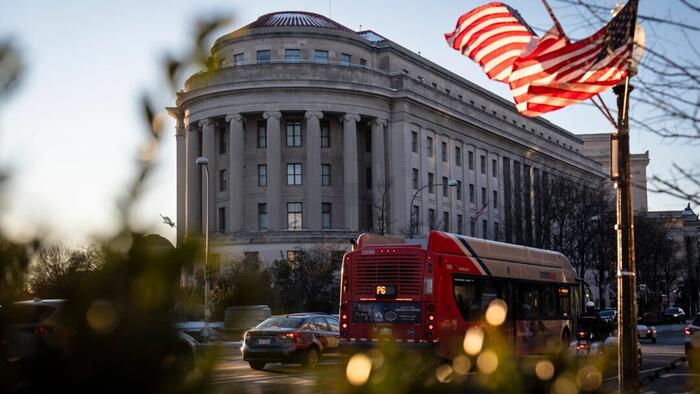


Authored by Naveen Athrappully via The Epoch Times,
The Federal Trade Commission (FTC) has approved advertising services giant Omnicom Group Inc.’s $13.5 billion acquisition of ad company The Interpublic Group of Companies Inc. (IPG) under the condition that Omnicom does not engage in political or ideological discrimination, the agency said in a June 23 statement.
New York-based Omnicom acts on behalf of its clients to buy ads to be displayed on media publishers. On Dec. 9, 2024, Omnicom announced it intended to acquire IPG, also based in New York. The FTC filed a complaint against the acquisition, arguing that the transaction risked consolidating the U.S. media market.
“Omnicom and IPG are the third- and fourth-largest media-buying advertising agencies in the U.S. Combined, they will be the world’s largest media-buying advertising agency,” said the FTC statement.
A combined entity increases the risk that ad media companies in the market may coordinate to push certain policies that may be anticompetitive in nature, the agency said, adding that advertising entities have previously engaged in such activities.
“Advertising agencies have coordinated—including through industry associations—on decisions not to advertise on certain websites and applications,” the statement said.
“Coordination among advertising firms may reduce ad revenues for particular media publishers, forcing those publishers to reduce the amount of content they can offer to their own consumers and their investment in their sites.”
The FTC said it has accepted a proposed consent order that will prevent such “anticompetitive coordination” from Omnicom once its acquisition of IPG is completed.
The order restricts Omnicom from colluding or coordinating to take advertising away from any media publisher based on the publisher’s ideological or political viewpoints, except in situations when the ad client insists on avoiding certain publishers.
“Coordination among advertising agencies to suppress advertising spending on publications with disfavored political or ideological viewpoints threatens to distort not only competition between ad agencies, but also public discussion and debate,” said Daniel Guarnera, director of the FTC’s Bureau of Competition.
“The FTC’s action today prevents unlawful coordination that targets specific political or ideological viewpoints while preserving individual advertisers’ ability to choose where their ads are placed.”
The proposed agreement is now open to a 30-day public comment period.
The Epoch Times reached out to Omnicom and IPG for comment on the FTC’s restrictions against discrimination underscoring the merger proposal but did not receive a response by publication time.
In a June 23 statement, John Wren, CEO of Omnicom, welcomed the FTC decision related to the company’s push to acquire IPG.
“We are delighted that our transaction with Interpublic has cleared this significant regulatory hurdle,” he said. “This is an important step toward the completion of the proposed acquisition.”
“We continue to look forward to obtaining the remaining regulatory approvals and closing in the second half of this year, consistent with our expectations when we announced this transaction.”
The FTC’s proposed consent order in the Omnicom–IPG deal is part of the agency’s broader push to prevent censorship in the digital space, affecting both platforms and users.
On Feb. 20, the FTC announced launching a public inquiry “to better understand how technology platforms deny or degrade users’ access to services based on the content of their speech or affiliations.”
At the time, FTC Chairman Andrew N. Ferguson said the inquiry would help the agency understand how such companies “may have violated the law by silencing and intimidating Americans for speaking their minds.”
Regarding the Omnicom merger, Ferguson said: “Today, Omnicom and IPG have committed themselves to help stop that sort of coordination in their industry. This consent agreement will help mitigate the dangers inherent in a consolidated national advertising market.
“I hope the conditions imposed on this merger will encourage all advertising firms to adopt similar practices and thereby reduce the temptation to collude to the detriment of their customers, independent journalists, small and independent media companies, consumers, and the American public square.”
